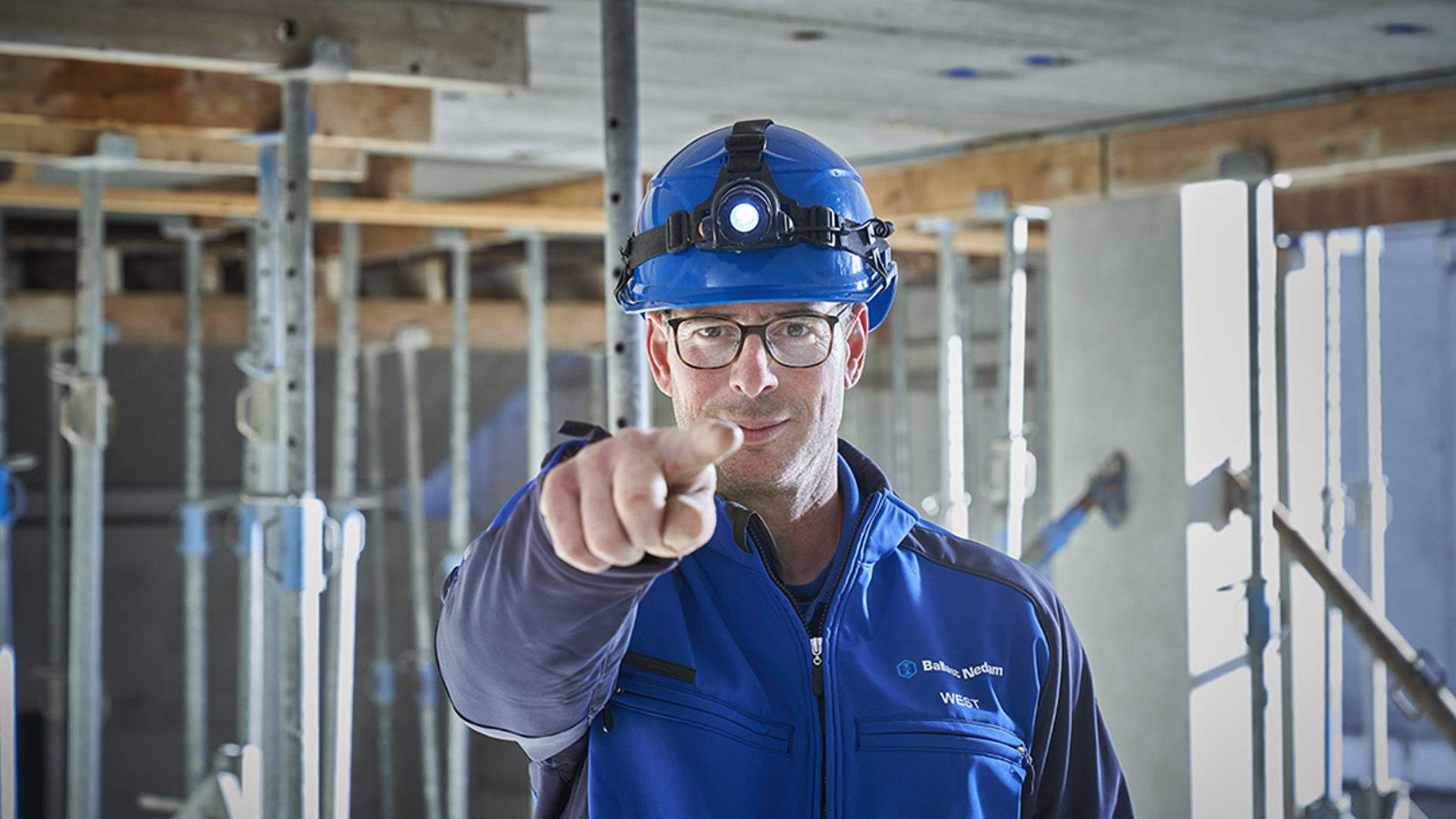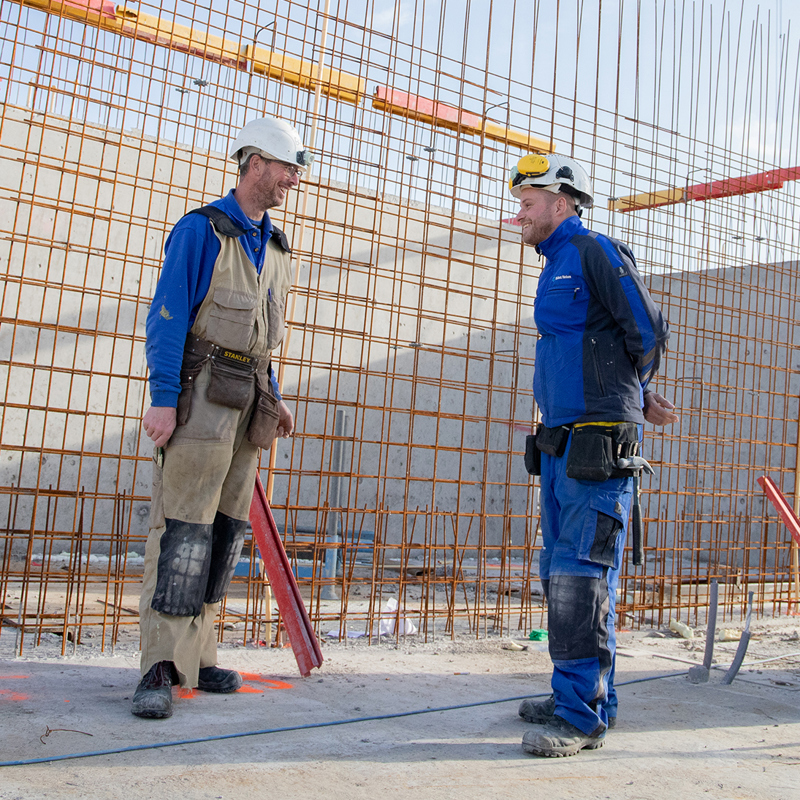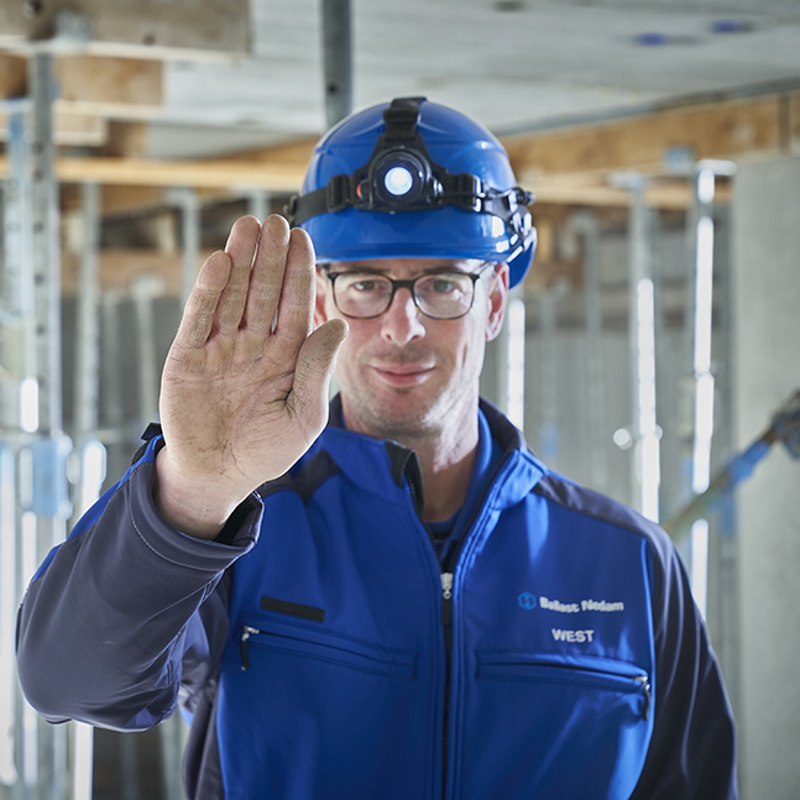Safety

Open and honest
Working safely, coming home healthy; at the end of a working day Bas Machielse loves to drive to his wife and three children aged 10, 14 and 17. At two times in his life, he nearly didn't manage to do that.
Bas has been working in the construction industry for thirty years, about fifteen of which have been with Ballast Nedam. He is currently a carpenter on the Poortmeesters project in Delft. His skills and experience enable him to assess whether a workplace or situation is safe and, if necessary, to adjust it together with colleagues. Still, he sees every day how we underestimate safety risks and he feels that this can be done better.
Bas describes a second situation where things went wrong and he was extremely lucky with the outcome. "Two cranes collided, causing the counterweight of one crane to push against the wire of the wall that a colleague and I were installing. The wall came up and stayed on the far end of the cutting. My colleague and I came close to being squashed like hamburgers between two walls."
We came close to being squashed like a hamburger.
"Also, more than when I started working, there is now attention to people's physical health. That is, of course, a very good thing! Young people are told from the start: 'Remember your posture, don't drill in a crooked position and lift with your legs. Wear a dust mask. Lift one scaffolding board at a time,' and so on. We're more aware of each other."


Bas does not shy away from calling people to account for unsafe behaviour. Every day he reminds colleagues, truck drivers, crane operators and visitors to the site to wear helmets. He believes it is important to show genuine concern for his colleagues. As far as he is concerned, safety can be discussed even more often with those involved in the preparations or in the preliminary phase of a new collaboration with a subcontractor. The clearer it is at that point in time about how we deal with safety, the greater the chance that we can achieve this together, Bas believes.
For Bas, it helps that toolboxes about safety are held regularly. "Sometimes you think: is this necessary? Yet repeatedly discussing safety makes you more aware of its importance without you noticing. That's just how the human brain works; it keeps us on our toes."
Repeated conversations about safety make you more aware without noticing.
Bas does not often discuss the risks of work with his family. "It would of course affect us enormously if I were to be injured. You might not be able to do certain fun things and you might face financial challenges. Because of my many years of work experience, we have a lot of confidence in the way I act in unsafe situations. So we don't often worry about the risks. We just enjoy it."
Through his long career in construction, Bas has literally become an early bird. In the spring, he gets up at 4.15 a.m. to go bird watching in the park, the forest or the fields. It is a hobby that he wants to continue to enjoy for a long time. On the way back from his morning round, Bas visits the butcher, fishmonger and baker. He likes to take good care of his family. "When I come home, everyone is awake. Then we have a nice breakfast together."